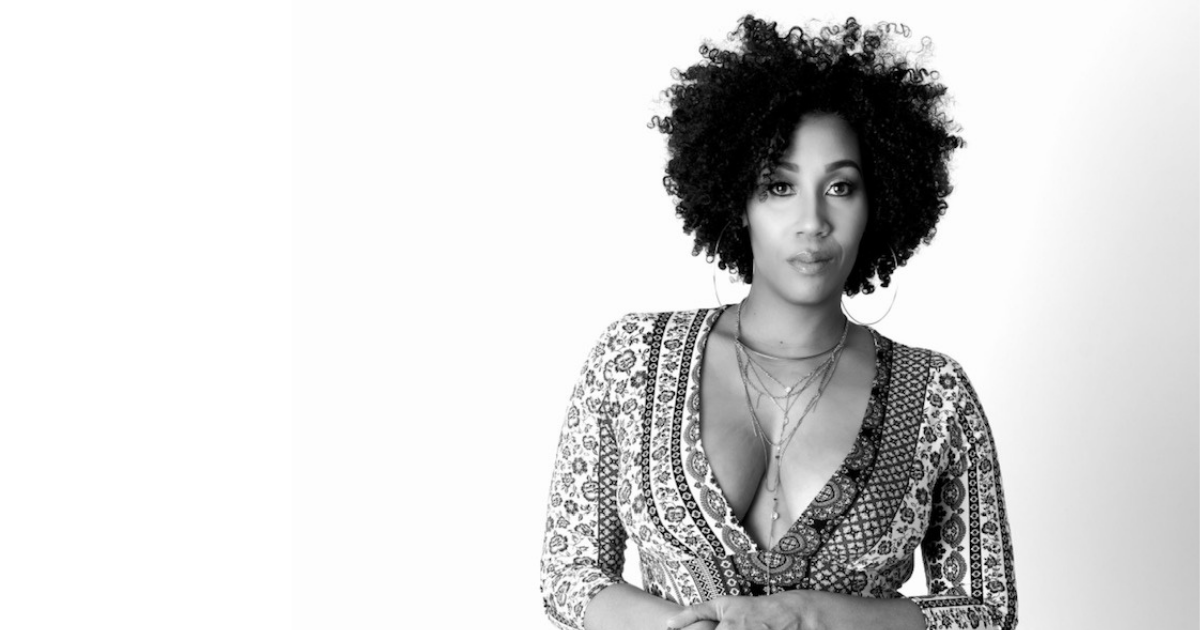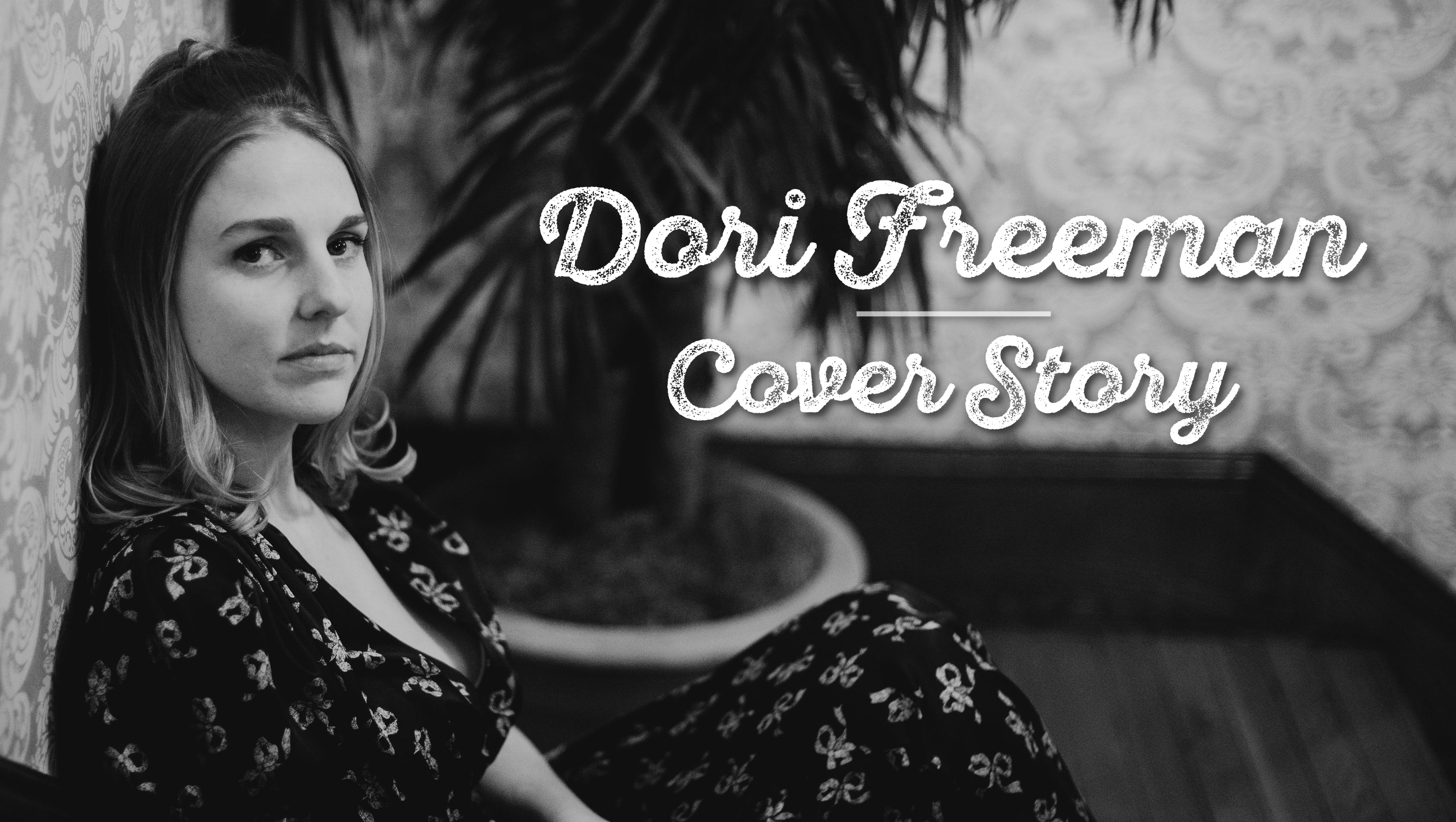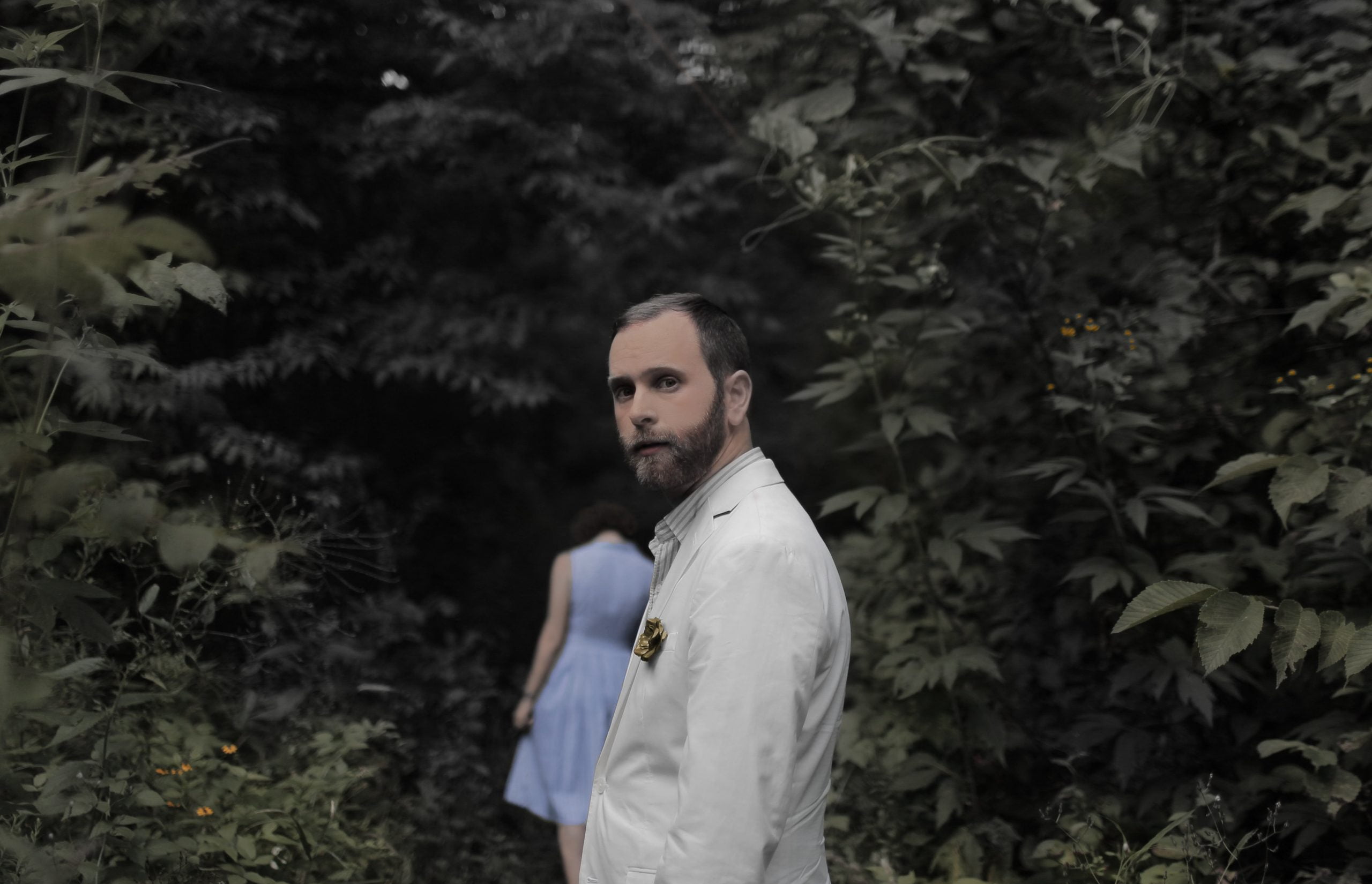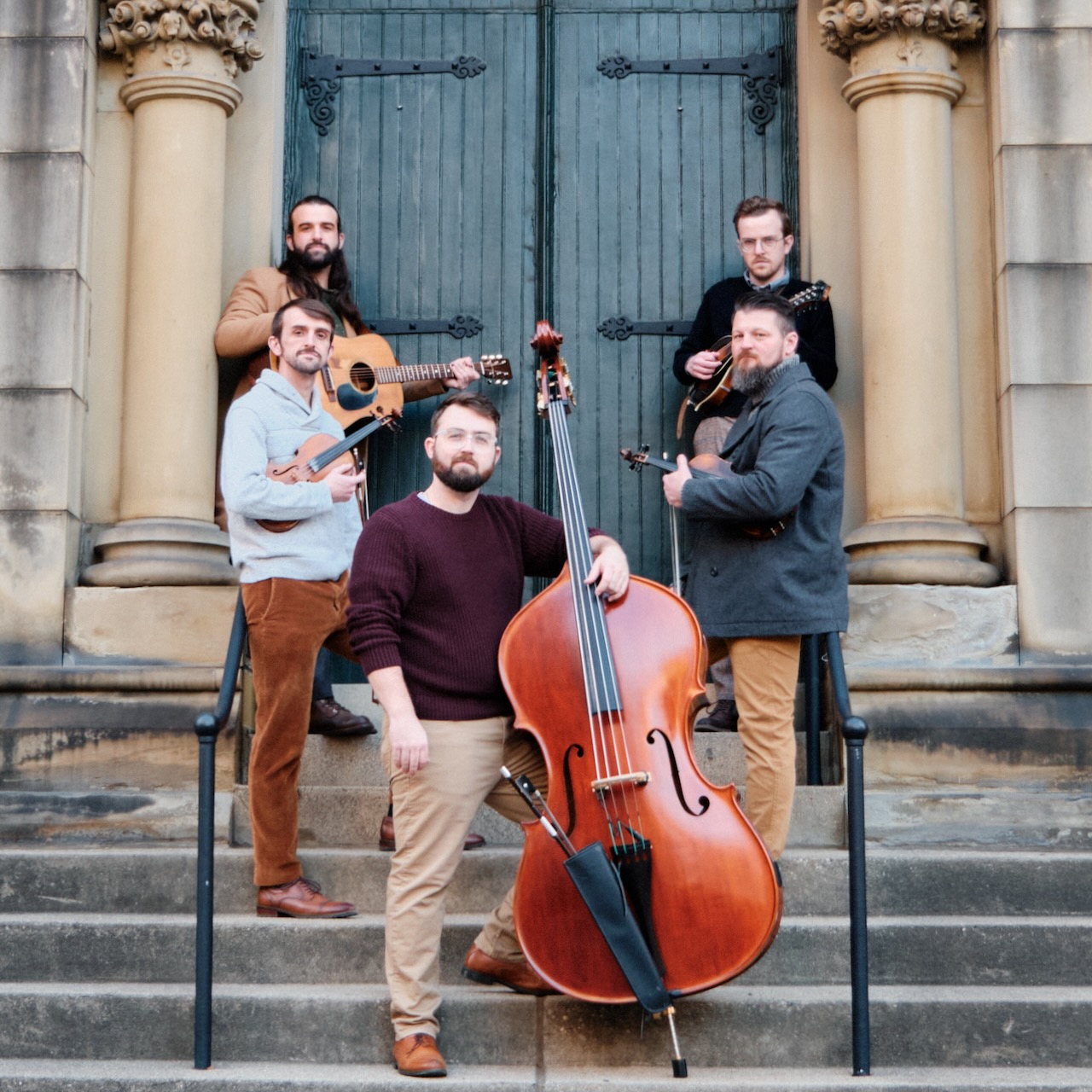Between caring for her two kids and hosting her brand new show, Color Me Country, on Apple Music Country, singer/songwriter and creator Rissi Palmer has had plenty to keep her busy since the touring industry shut down due to coronavirus.
This week, Palmer will take part in our fifth annual Shout & Shine Online as part of IBMA’s World of Bluegrass conference and festival, performing a song from her most recent album, Revival. BGS jumped on the phone with Palmer to talk about the showcase, the musical heritage of North Carolina (her home for the past ten years), her musical community, Color Me Country, and more.
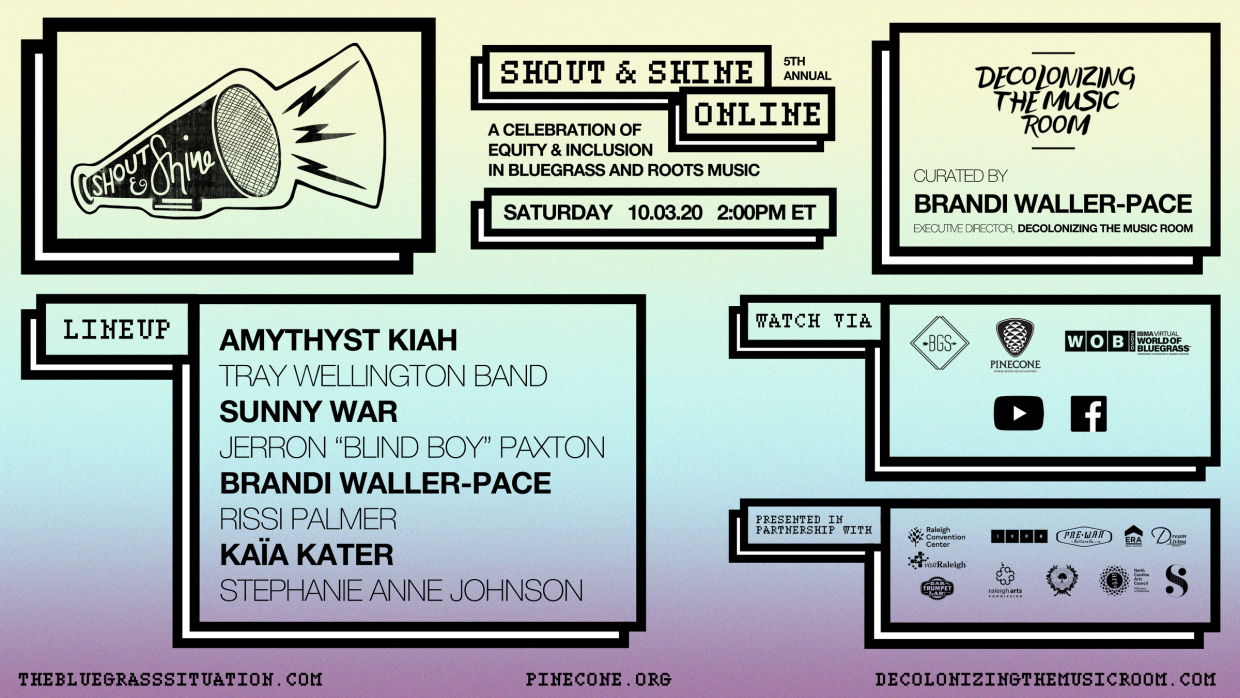
(Editor’s note: Watch Shout & Shine Online here on October 3 at 2pm ET)
BGS: The production end of things has felt really different this year, putting Shout & Shine Online together virtually rather than in-person, like the last four years. But I bet being a performer feels pretty different to you in a pandemic right now as well?
Rissi Palmer: The performance part of it is extremely strange. I’ll be perfectly honest, I don’t like doing livestreams. [Laughs] I do them, because that’s what we have to do, but yeah. Not a big fan.
As far as the other [aspects], though, I have to say the time at home has been good for getting projects done. I’ll be honest with you, Color Me Country, I had been thinking about doing it for at least a year, but I didn’t have time, ’cause I was out on the road and doing all this stuff. Once we got to be home, once quarantine was happening, I had a little time — not a lot, because I have two children — to start working on it and actually sitting down and focusing. At the same time, with everything that’s going on I found it really hard to write. I’m flooded with a lot of different emotions right now, so I want to be creative, but the easiest thing for me has been channeling a lot of my feelings and frustrations into my show, not so much the music. I hate it, but I’m not being as musically creative as I’d like to be. It’s hard, I’m having a hard time.
I did want to talk about Color Me Country, because Shout & Shine was created to literally provide a space for othered folks, marginalized folks, to exist within these genre formats and communities that have — whether stereotypically or traditionally or both — been white spaces for so long, and straight spaces for so long, and male spaces for so long. Shout & Shine is a space that’s not owned by any of the above, where we can celebrate the marginalized and underrepresented folks who have always been in these musics. I see you doing the same thing with Color Me Country.
That’s exactly what Color Me Country is. That’s what I wanted to do. I feel like so many times, as an artist of color in a genre that is predominately white, you’re mostly talking to white journalists. You’re mostly talking to white outlets. A lot of times you are othered. I don’t think people do it to be mean, I don’t think it’s done in malice or anything like that. It just ends up being one of the more interesting parts of the interview, it’s more interesting to ask an interviewee [about identity or race]. For me, in my experience — and I can’t speak for everybody else — I spent most of my interviews when my album first came out in 2007 talking about being Black, not really talking about my art. That starts to wear on you after a while!
Outside of the fact that I’m Black, outside of the fact that I’m a woman, I’m also a musician. I’ve been in a lot of the same rooms that these other artists have been in. I’ve had a lot of the experiences that they’ve had. So [on the show] we’re speaking to each other as peers. It’s an easier situation, I find. I end up getting stories or confessions or thoughts that people wouldn’t normally share. I think that’s good! I sometimes end up revealing things about myself in these conversations, because we’re being honest with each other. That’s what I wanted, because I didn’t feel like I had an outlet like that. Not that people weren’t kind to me or any of that, I just never felt that safe.
The local connection of Shout & Shine has been a really important part of our mission, in years where we’ve held the showcase during IBMA’s conference in Raleigh in-person, connecting the show to the legacy of North Carolina’s roots music has been a part every year. The stories of bluegrass and country are tied so tightly to North Carolina, so I wanted to ask you about your connection to the state and what about its musical history and community that resonates with you?
First of all, I have been a North Carolinian for ten years now. I absolutely love it here. I live in Durham and specifically in our community — and I’ve lived in Los Angeles, I’ve lived in Nashville, I’ve lived in New York and Atlanta — I have to say this particular music community is my favorite. I say that because there are so many types of music here! There are so many really ridiculously talented people. I think that has something to do with the fact there are so many colleges here — or there’s something in the water! Really, nationally important music is being made here. Everyone is so open and so giving. It’s one of the few music communities that actually feels like a community. I know for me, being here has made me a better artist.
Just look at the art that comes out of here! Everything is extremely conscious, it’s thoughtful; I think that whatever is happening with the artists here, it resonates. Showing people what’s going on here and exposing it [to the world] is really important, because there’s so much good stuff here.
Speaking of collaborations, your Shout & Shine Online performance includes Omar Ruiz-Lopez on a song you wrote called “You Were Here.” The performance is excellent and exquisite and we won’t give it away entirely, but tell us a bit about working with Omar and the song?
First of all, I’m super excited to be a part of it! I was so excited when I got the email. Omar and Lizzy [Ross] of Violet Bell are two of my favorite people in the world. I think the world of them. They’re so ridiculously stupid talented. It’s not even funny.
In 2018 I was a part of an artist in residency for like a week and we were all put in a house, the Oyster House, out on the coast. It was myself, Violet Bell, XOXOK — Keenan Jenkins, he’s local he’s amazing as well. We were there with a couple of playwrights, some artists, and we were in this house for a week. We got along really well, we’d jam at night, that sort of a thing. We all formed such tight relationships between us musicians, so any time we can perform together we try to make it happen. Omar actually played on the record of the song I did for the performance and so when I got the email and knew I was going to do this I knew I had to call Omar. Not only that, I was just chomping at the bit to have another musician in the shot with me!! I’m so sick of playing things by myself! [Laughs] I wanted to make it big and beautiful.
Omar plays emotionally and that’s what this song needed. I remember when I called him to track on it, he did it in about two takes. We were sitting in the studio just bawling while we were recording it. He did an excellent job. I couldn’t imagine sharing this moment with anybody else.
Photo courtesy of the artist.

